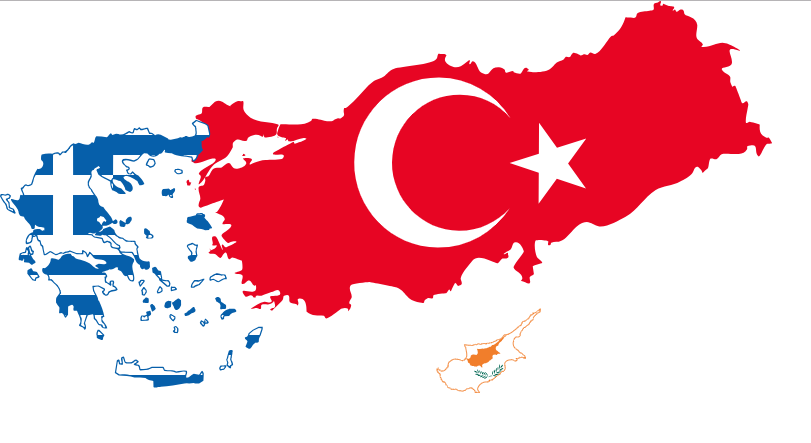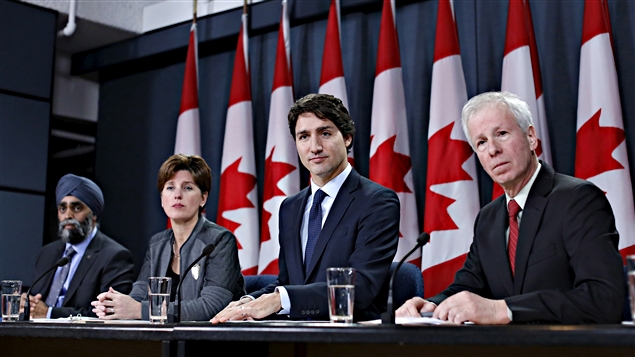Gun violence has become more prominent in Toronto this summer, inciting shock and anger from Canadians who had great confidence in the country’s common-sense gun laws. Program Editors Nasser Haidar, Maria Pepelassis and Michelle Verbeek comment on the nature of gun violence in Canada, the illegal arms trade between the US and Canada, and mental illness as factors in the most recent shooting on the Danforth
Nasser Haidar, Program Editor: Emerging Security
Canada has been largely safe from the mass shooting phenomenon that is a constant source of fear and terror in the United States due to the American legislature being beholden to special interest groups. The gun laws in Canada have so far kept gun violence at a minimum using common sense rules. Nevertheless, shooting incidents occurring in Toronto, in particular, have been on the rise in recent years and are expected to continue rising throughout this year. The sad reality about the arms trade is that when there is a will, there’s a way. But what proponents of gun rights rarely allow themselves to admit is that cost is a significant barrier. When unable to purchase a firearm through legitimate means, those who want to purchase arms can do so illegally through arms dealers. But the harder it is to attain the weapon, the higher the cost, and the more competition there is over limited supplies and ammunition.
In particular, Canada is a victim of its proximity to the United States, where guns are so loosely available that they can be just as easy to buy and sell as any household item. This simple reality significantly raises the risk of the cross-border trade in guns and ammunition, whether illegal or legal. Another serious risk is the fact that there is intentionally no specific record keeping or tracking of shipments of the arms trade into Canada from the U.S. and vice versa. The Liberal government’s bill C-47 that hopes to tighten Canada’s loopholes so as to better adhere to the Arms Trade Treaty that was agreed upon by two-thirds of the world in 2013 at the United Nations, doesn’t even specifically address this massive loophole. In this regard, whereas the gun violence issue is a regarded primarily as a rights and public health and safety issue in the U.S., it can now also be regarded as a foreign policy issue and national security threat to Canada, as manufacturers hope to continue expanding their insatiable appetite for profit in the North American market.
Without finding creative ways to prevent the arms trade from seeping across the border into Canada, and with the gun-rights debate so stubbornly polarized in the United States, Canada’s only means of action when it comes to the issue of keeping communities safe from gun violence is not – as some U.S. politicians would constantly remark – to increase the availability of guns for the sake of a community’s self-protection. The only real and pragmatic form of response from the Canadian government, other than gun buyback programs that incentivize profits over individual gun ownership, or more stringent policing, is to increase the resources available to communities for providing a social security net for one another. By funding mental health programs, community programs, and ensuring that those who would otherwise turn to violence have a support network within their communities that they can turn too instead, Canada has a better hope of cauterizing this issue before it gets worse.
Maria Pepelassis, Program Editor: Security, Trade, and the Economy
As the details on the Danforth shooting became public, I was shocked and dismayed to hear that like so many other attackers, the Danforth shooter had a history with mental illness. Like after every other shooting I’ve heard and read about these past few years, I asked myself: how did these troubled individuals get access to weapons? I’ve come to realize that even in a country like Canada with common-sense gun laws, weapons are widely available on the black market, for a variety of reasons that my colleagues discuss in this forum. In addition to the prevalence of illegal weapons, however, this incident shows yet again how far we have to come with regards to providing assistance to families and individuals suffering from mental illness. Beyond helping those individuals secure better lives for themselves, financial and structural support for mental health research and facilities are an obvious security issue.
As a high school student at Victoria Park Collegiate Institute, Faisal Hussain had a history of disturbing incidents, including cutting himself with a pencil sharpener, prompting police be called to the school, and reports to teachers and administrators of being in pain and hearing voices. Over ten years later, he walked down Danforth Ave and killed two young girls after opening fire on the busy street. Obviously, when it comes to shrugging off the responsibility of mental health support, the stakes are high for the security of individuals living with mental illness as well as the general public. An educator at Victoria Park, Jenessa Dworet, said of Faisal that “he was afraid he was going to hurt people. He was very obsessed with guns.” Knowing the extent of his psychosis and the known harm he could pose to himself and others, it is difficult to understand how Hussain had gone so long without support from medical services.
Beyond the benefits greater access to services would offer to public safety, support for those suffering from mental illness is a positive contribution to society in and of itself. Those suffering from mental illness are also disproportionately the victims of gun crime, especially among Canadians with suicidal tendencies. The Department of Justice notes 80 percent of firearm-related deaths as suicides, highlighting a problem in Canadian society of easy access to fatal weapons among those who would use such weapons to take their own lives. As such, the prevalence of suicide and guns as a weapon of choice to commit that act highlight a responsibility for Canadians to promote services that support individuals with mental illness so as to better their lives.
Lack of services in Canada with regards to mental health is directly linked to lack of funding for this global health crisis. Canada’s funding amounts for mental health services is near the bottom of world rankings among OECD countries. Louise Bradley, executive director of the Mental Health Commission of Canada says the funding is not sufficient to meet the demand for mental services across the country. The best way to ensure people with mental illness do not harm themselves and others is to offer them the services they need to live healthy and productive lives. Without these services, we cannot ensure the security of all citizens.
Michelle Verbeek, Program Editor: Women in Security
As Canada awaits more information from the Toronto Police on last Sunday’s Danforth shooting, we must take this opportunity to analyze our criminal justice system and models of policing at a time when gun violence in Toronto in particular has become a worrying trend.
One might argue that there is a necessity for increased police presence in ‘troublesome’ communities, or that people with mental health issues need to be properly monitored for violent activity. These arguments often surface after events like the Danforth shooting, and with them they carry heavy societal consequences. It becomes increasingly important to dispel them now, as they will not increase our capacity to keep our communities safe from gun violence, they will instead worsen the situation.
The increased presence of police within communities that are deemed ‘at risk’ of having higher incidences of criminal behaviour is often correlated to lower socioeconomic communities with high populations of minorities. In singling out these communities, the Canadian government is inherently pursuing a racialized and class-based justice system. The targeting of specific communities reinforces distrust with police, and often marginalizes them to the point of feeling disconnected from the state. This ‘us’ vs. ‘them’ mentality is dangerous as it has the ability to further perpetuate negative discourses and criminal behaviour, and is one of the components observed in the radicalization of individuals or communities.
Although there is not yet any clear and definite motive underlying the Danforth shooter’s actions, it is important for the Canadian government to review their methods regarding how they handle crime now, before more events of this nature take place. Communities in Toronto need the government to address the underlying causes of crime, instead of pursuing increased surveillance over specific groups.
In this understanding, the Danforth shooter is not absolved from personal accountability linked to his atrocious crimes. Rather there is an increased need for the government to focus its resources towards promoting initiatives surrounding education, housing, employment, and much more. It is crucial that we shift our understanding of crime to a more modern and realistic view that crime relates to socio-economic circumstances, mental illnesses, and marginalization. Through a proactive approach, we can better protect our communities and effectively address criminal justice problems, not create new ones.
Photos: Toronto skyline seen from Toronto Islands by chensiyuan via Wikimedia Commons and AK 47 rifle silhouette. Public Domain
Disclaimer: Any views or opinions expressed in articles are solely those of the authors and do not necessarily represent the views of the NATO Association of Canada.




